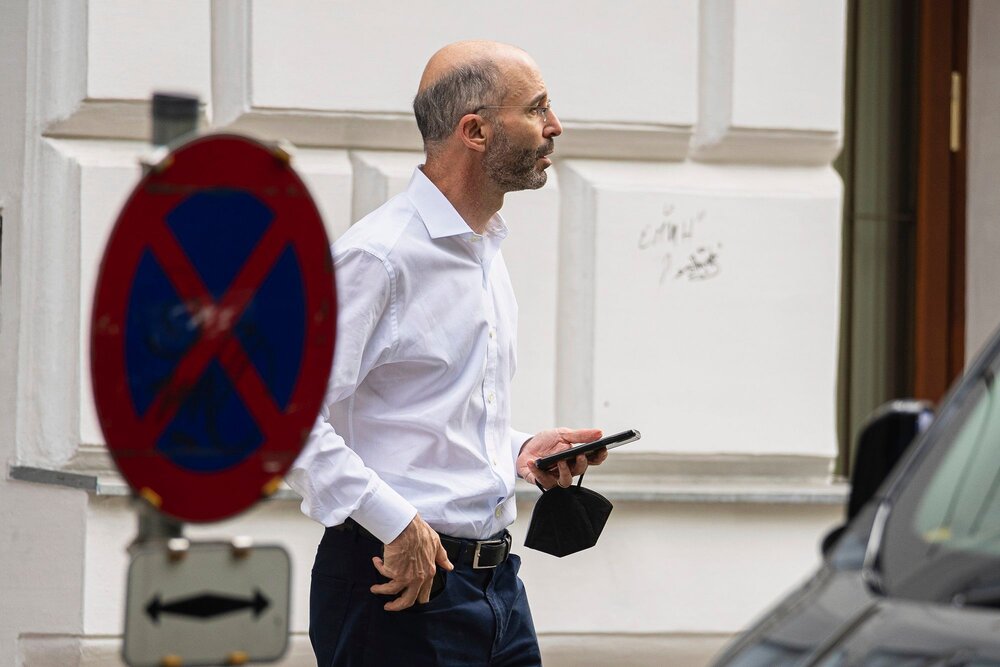It is now or never!

TEHRAN — As the Vienna talks have reached a stalemate, the U.S. Senate passed a controversial motion that could jeopardize the–make or break-talks in Vienna.
A bipartisan substantial portion of senators voted late Wednesday to endorse a Republican-led measure stating that any nuclear agreement with Tehran must confront what they called Iran's support for terrorism in the region, and that the U.S. should not lift sanctions on the Islamic Revolutionary Guard Corps (IRGC).
According to multiple people acquainted with classified Hill briefings on the subject, lawmakers from both parties said it was a preemptive strike to Biden's negotiating team, who have all but admitted in private that an agreement that goes beyond restricting Iran's nuclear program is no longer possible.
The vote was also a foreshadowing of the bipartisan censure that is expected to follow if the U.S. and Iran reach an agreement that does not tackle Iran's non-nuclear programs and does not remove the IRGC's terrorist classification — a "test vote," as one senator put it.
"It is a strong expression of sentiment about where we are with Iran and the concern that members of the Senate have about Iran's trajectory here as it relates to its march toward a nuclear weapon — and what we try to do to prevent it," said Senate Foreign Relations Committee Chair Bob Menendez (D-NJ), who was absent for Wednesday's vote but would have reportedly supported the measure. Menendez voted against the 2015 nuclear deal negotiated by Barack Obama's administration.
“At the end of the day, I think it’s a pretty strong statement,” the senator added.
The decision on Wednesday was the first time legislators were obliged to speak publicly about the fundamental points of contention in the Biden administration's year-long efforts to resurrect a nuclear deal with Iran. It said unequivocally that the majority of legislators are suspicious of the provisions of the accord and would only approve a more comprehensive agreement that addressed Tehran's regional behavior.
Sen. Chris Murphy, who argued against the bill on the Senate floor, said it may undercut the Biden administration's accomplishments and would be an endorsement of Donald Trump's attitude to Iran.
“To deny this administration the ability to enter into a nuclear agreement isn’t just folly, it’s downright dangerous…. We should not endorse four more years of this failed Iran policy,” Murphy added.
On Friday Iran’s IRGC chief Hossein Salami said, “Americans' animosity toward the IRGC is quite natural and also an interminable issue. The decision of the U.S. Senate is not an important issue for us…”
He added as the Leader of the Islamic Revolution Ayatollah Khamenei has stated “weapons of mass destruction have no place in Islamic logic.”
Salami’s remarks were in response to the motion passed by the U.S. Senate.
Multiple U.S. officials have told Laura Rozen, an American reporter, that the onus is on Iran, but is it really so?
The Biden administration has stated that it will not remove the IRGC from the list of Foreign Terrorist Organizations (FTO) unless Iran agrees to some reciprocal non-nuclear measures, which the U.S. has apparently proposed.
Among the possibilities purportedly proposed by the U.S. are a mutual promise not to target each other's officials or former officials, Iran lifting sanctions on U.S. Central Command, or agreeing to follow-up regional negotiations, according to Rozen.
However, as Iranian Foreign Ministry officials have repeatedly stated, Iran's red lines in Vienna cannot be violated.
Retaliation against former U.S. officials deemed responsible for decisions like assassinating IRGC Quds Force Commander General Qassem Soleimani in January 2020 is one of Iran’s red lines in Vienna, and Iran’s Foreign Minister Hossein Amir Abdollahian said on March 10 that issues related to national heroes are non-negotiable.
General Soleimani was a legendary commander in the fight against terrorist groups, including ISIS, also called Daesh in its Arabic acronyms.
In his phone call with European Union foreign policy chief Josep Borrell, Amir Abdollahian reiterated that raising new demands by the U.S. has no logical justification and this is at odds with the country’s stance on swiftly reaching an agreement.
Amir Abdollahian also underscored that issues related to Iran’s national heroes are non-negotiable, Iran’s Foreign Ministry website reported.
If Biden is serious about resurrecting the JCPOA as he promised in his elections campaign, he’d better prepare the ground in the Senate.
